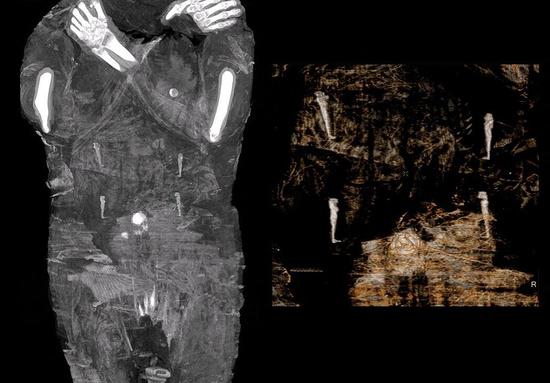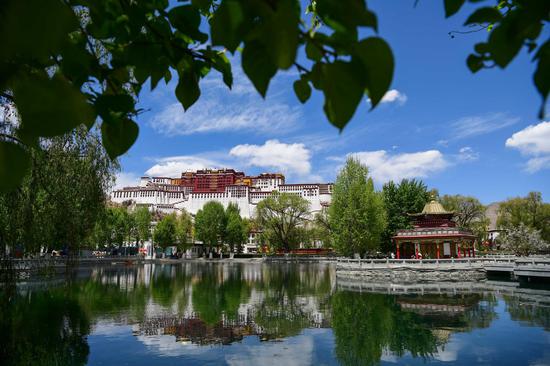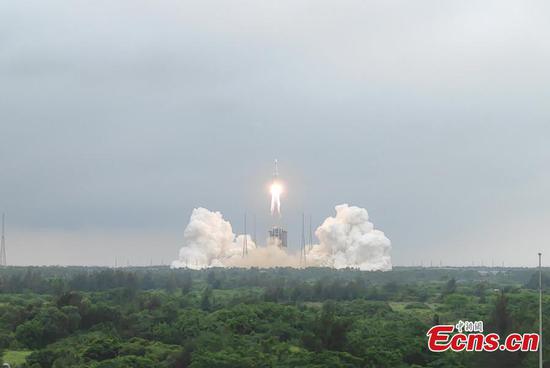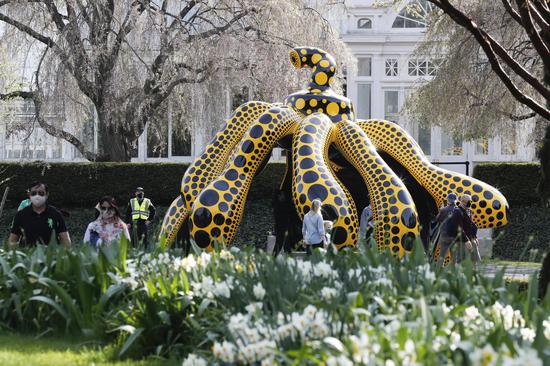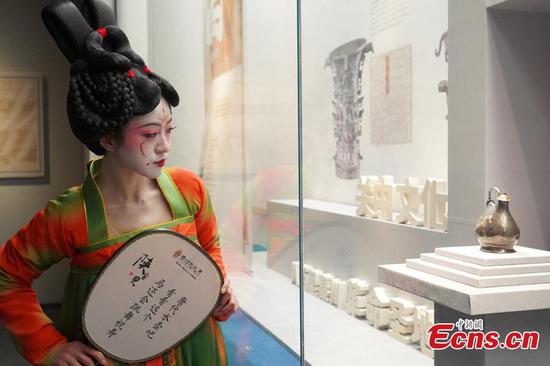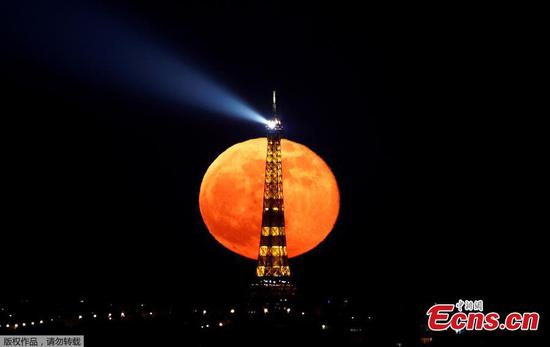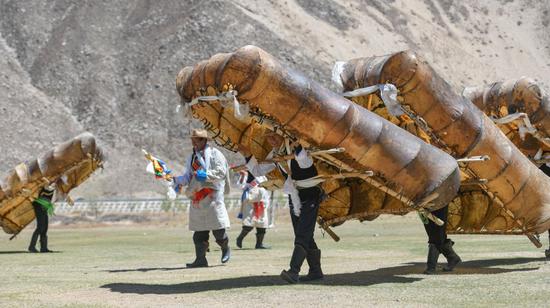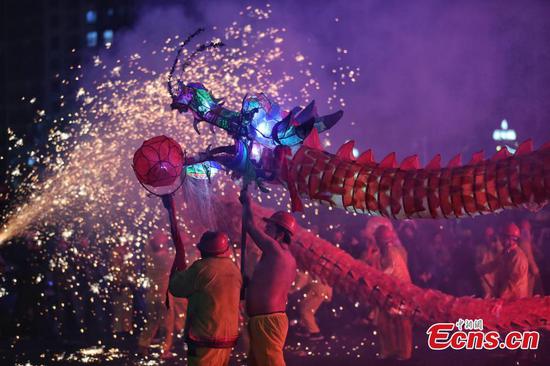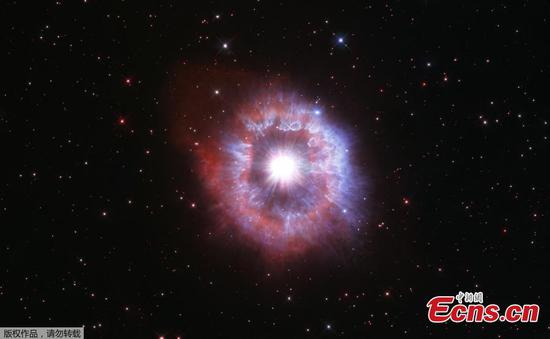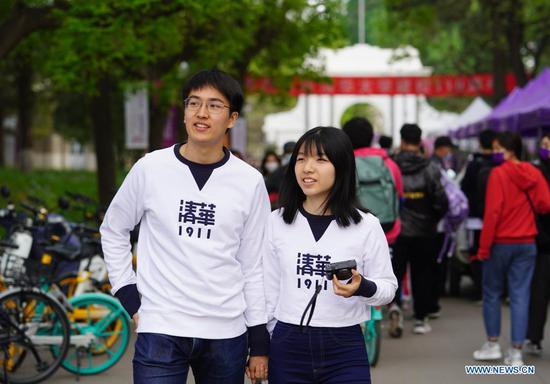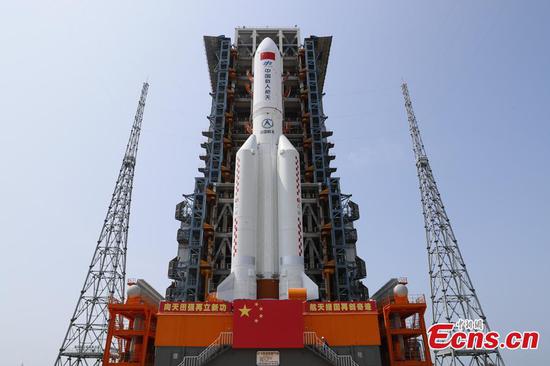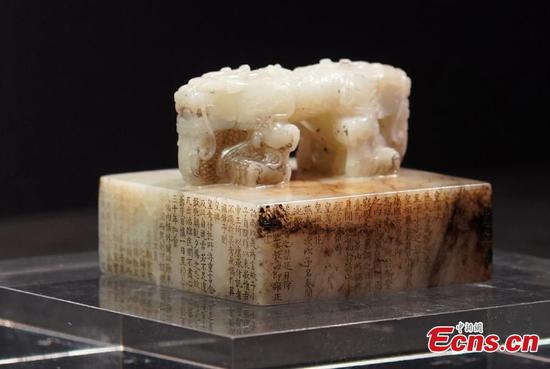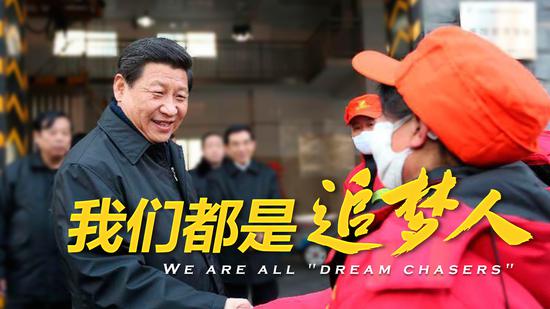A poignant documentary depicting a chapter in America's long history of racism and exclusion of Chinese nationals and its impact on ethnic Chinese residing in the country was screened here as one of a series of events commemorating Asian Pacific American Heritage Month, which recognizes the contributions and influence of Asian Americans and Pacific Islander Americans to the history, culture, and achievements of the country.
"We didn't know when we made the film how eerily similar today's situation would be to back then. It's chilling and clarifying seeing (racism in America) unfolding over time," Ric Burns, co-director and producer of the 2017 film The Chinese Exclusion Act, told Xinhua after Saturday's screening.
"Events in history are all related. They inform us from the beginning of our nation all the way to the present day," Li-Shin Yu, Burns' long-time collaborator and also co-director and producer of the film, added.
The event was jointly organized by the Association of Chinese Americans for Social Justice, Asian and Pacific Islander Americans Public Affairs, and the National Council of Chinese Americans.
Co-funded by the Corporation for Public Broadcasting, the National Endowment for Humanities and others, the PBS documentary exposes the long buried, shameful side of American immigration policy at a time when the Statue of Liberty's famous shining entreaty: "Give me your tired, your poor. Your huddled masses yearning to breathe free," applied to every race and nation in the world ... except the Chinese.
It is an insightful and well-executed exploration into the roots and causes of the Chinese Exclusion Act, a disturbing statute in American law from 1882 to 1943 that singled out anyone of Chinese descent and barred them from immigrating to the United States, with lingering effects until 1965.
"We see ourselves as a nation of immigrants who embrace all groups," said Yu.
"But so much hate and misunderstanding is about thinking we are different, they are different," the Primetime Emmy Award-winner said.
She pointed out that, other than Native Americans, all Americans are immigrants. "Even the first colonists on the Mayflower. They came for opportunity and a new start. That's what all immigrants want. We are all in this together."
The film opens with a clip of a letter penned in 1885 by Chinese American immigrant, Saum Song Bo, in response to a solicitation to help fund the pedestal for the Statue of Liberty being erected in New York harbor.
In his letter, Bo extolled his love for his new country and for American ideals and freedom, but noted how those ideals did not apply to him and his countrymen because of the newly ratified 1882 Chinese Exclusion Act.
"Whether this statute against the Chinese or the statue to Liberty will be the more lasting monument to tell future ages of the liberty and greatness of this country, will be known only to future generations. Liberty, we Chinese do love and adore thee; but let not those who deny thee to us, make of thee a graven image and invite us to bow down to it," wrote Saum Song Bo.
"We have a hazy idea we are a land of liberty, a nation open to immigrants, that the lady in the harbor presides over all that ... but that is very different from the historical reality," Burns mused.
Chinese immigrants understood before most Americans what this nation could be, Yu said.
The battleground for equal rights for Chinese Americans was the 14th Amendment to the U.S. Constitution.
Passed into law after the Civil War to grant freed African American slaves the rights of citizenship and equal protection under the law, it worked to the benefit of all immigrants, including the Chinese.
"We all benefited from it," Yu said.
The documentary also covers other movers and shakers in the Chinese American community who fought long and hard for equal civil rights under the law, such as Wong Kim Ark, a native of San Francisco born to Chinese immigrants.
He decided in 1898 to push back against bigoted state officials in California who refused to recognize him as an American citizen because he was Chinese.
His landmark Supreme Court win set the precedent for America's unique "Birthright Citizenship," securing citizenship status for all immigrant children born in the United States, regardless of national origin.
"Wong Kim Ark was the original 'anchor baby,'" she told Xinhua.
"He took his case all the way to the Supreme Court and changed history," Burns said.
The six-time Emmy Award-winning director maintained that the number of other court actions -- tens of thousands of them -- filed by Chinese Americans is "one of the most moving and patriotic actions in our nation's formative history."
The anti-Asian hostility of today's America harks back to that of the 1880s.
Yu, who lives in the liberal bastion of the Upper West Side, a neighborhood in the borough of Manhattan in New York City, described a verbal assault she endured personally in the neighborhood where she had lived peacefully for many years.
"We say everyone is equal, that there are equal rights and equal opportunity, but there I was, standing and cheering for our first responders and essential workers during COVID-19 ... when someone came up and yelled at me 'To go home,' that I, 'don't belong here!'" she said.
"It's incredibly disheartening and confusing to hear that," she confessed. "You are filled with rage and uncertainty, feeling helpless, and you ask yourself 'have I made the right choice to come here?'"
But "if we look back through history, we need to stand up, and speak up -- use the 14th Amendment to fight for our rights," she added.










